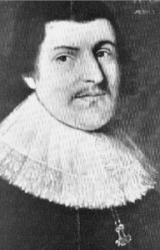Planning worship?
Check out our sister site, ZeteoSearch.org,
for 20+ additional resources related to your search.
- |
User Links
Person Results
M. Owen Lee
b. 1930 Person Name: M. Owen Lee, CSB, b. 1930 Topics: Creation Adapter (st. 2-3) of "Hail, Holy Queen Enthroned Above" in RitualSong
M. Owen Lee
Assaf Levitin
b. 1972 Topics: Praise and Thanks/Creation Author (Hebrew of "Großer Gott, wir loben dich" in Trimum
Assaf Levitin
David Lee
b. 1956 Topics: The Creation Author of "May the Words of My Mouth" in Psalms for All Seasons LEE, DAVID (b. 1956): B.Sc. Geology with Geophysics, University of Durham; M.Sc. Computing Science, University of Newcastle upon Tyne. Working life in I. T. Support in university and scientific research. He has been active in church music since his early teens. He is member of the Hymn Society of Great Britain and Ireland, and in 2007 was elected to serve on its executive committee.Hymn, song and anthem settings appear in (amongst others) Singing the Faith, RSCM (Royal School of Church Music) collections, Lutheran Service Book (LCMS), Psalms for All Seasons., In Melody and Songs
David Lee(from In Melody and Song, Darcey Press, 2014, and previous (uncited) bio
David Lee
Emett Loera
Person Name: Emett Loera, b. 1955 Topics: Creation Translator (Spanish) of "This Day God Gives Me (En Este Día Dios Da la Vida)" in Oramos Cantando = We Pray In Song
Emett Loera
Aleksēi Federovich L'vov

1798 - 1870 Person Name: A. F. Lvov (1799-1870) Topics: The Creation Composer of "RUSSIAN ANTHEM" in Hymns for Today's Church (2nd ed.) Alexis Federovich L’vov Estonia 1798-1870. Born at Reval, Estonia, son of the St. Petersburg imperial court chapel director, he learned violin as a child and gave regular concerts in his home at age 9. Studying under a number of teachers until age 19, he then studied independently and developed his own personal style of playing. He entered the Russian army in 1818, became a civil engineer there eventually a General in 1828, when he was appointed Aide-de-camp to Tsar Nicholas I. He married Praskovya Aggeyevna, and they had a son and two daughters. He eventually took over his father’s post after he died in 1837 and stayed at that position for 24 years. He formed a string quartet in St. Petersburg and held weekly concerts at his private residence, which were attended by members of high society, including Franz Liszt, Robert and Clara Schumann, and Berlioz. In charge of the Russian chapel choir, it was described by Berlioz as of exceptional quality, expressing regret that Europeans were unable to hear the extraordinary sounds of the chapel choir (80 singers). L’vov took his quartet on several European tours where he could play to public audiences. He met Mendelssohn, Meyerbeer, and Spontini, who became personal friends. L’vov codified the Russian liturgical musical style ‘Obikhod’, the standard repertory of most Russian Orthodox churches in the world. L’vov was a member of the Russian musical establishment. Two of his friends who attained musical fame were Glinka and Berlioz, both impressed with L’vov’s superb violin playing and composing abilities. He composed violin music, operas and various religious pieces. His opera “Undine” (1846) became famous. In 1850 he founded the Russian Concert Society. His musical style was eclectic, combining traditions of Russian culture with Italian and German influences. He retired in 1867 due to deafness. He died near Kovno, Lithuania.
John Perry
Aleksēi Federovich L'vov
Jorge Lockward
b. 1965 Person Name: Jorge A. Lockward, b. 1965 Topics: The Creation Author of "Psalm 65 (A Responsorial Setting)" in Psalms for All Seasons
Jorge Lockward
Henry Lawes

1596 - 1662 Person Name: Henry Lawes (1596-1662) Topics: Creation; Creation and the Environment Composer of "LAWES'S PSALM 47" in Ancient and Modern Born: January 5, 1596, Dinton, Wiltshire, England.
Died: October 21, 1662, London, England.
Buried: In the cloisters of Westminster Abbey, London, England.
Lawes, tutor to the daughters of the Earl of Bridgewater, is best known as a composer. He became a Gentleman of the Chapel Royal in 1626, and a member of the "King’s Musick" in 1631. He wrote over 400 vocal pieces, as well as anthems and instrumental compositions. His works include:
Choice Psalmes Put into Musick for Three Voices, 1648
Ayres and Dialogues (London: 1653)
Sources:
Frost, p. 680
Hughes, pp. 467-68
Nutter, p. 460
Stulken, p. 292
--www.hymntime.com/tch
Henry Lawes
Dong Hoon Lee
b. 1945 Topics: God in Creation and Providence Presence of Composer of "BAI" in Sound the Bamboo See Yi, Tong-hun (Composer)
Dong Hoon Lee
Bertram Luard-Selby
1853 - 1918 Person Name: B. Luard-Selby (1853-1918) Topics: The Creation Composer of "IVYHATCH" in Hymns for Today's Church (2nd ed.)
Bertram Luard-Selby


 My Starred Hymns
My Starred Hymns


